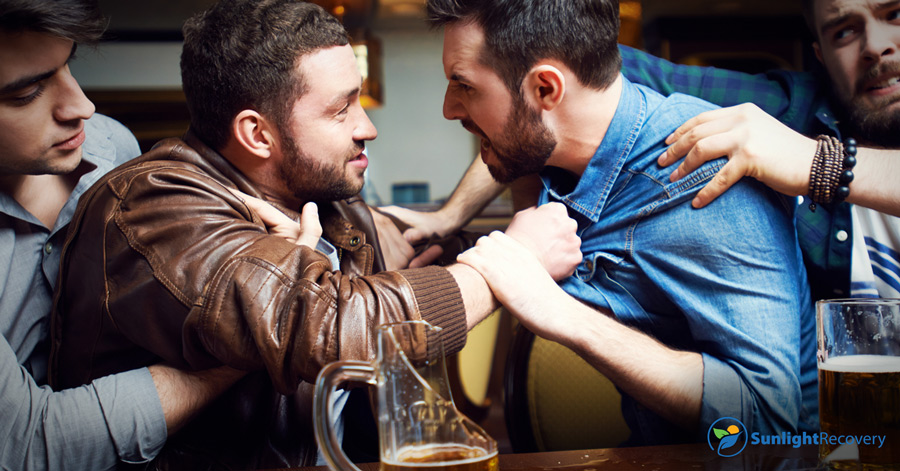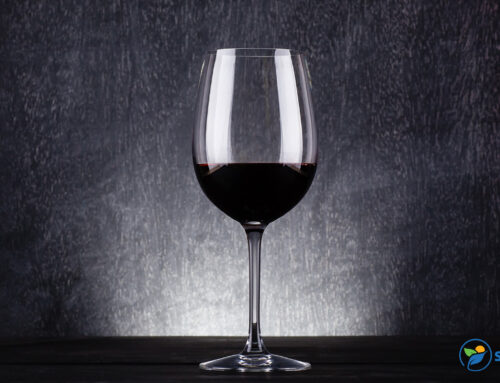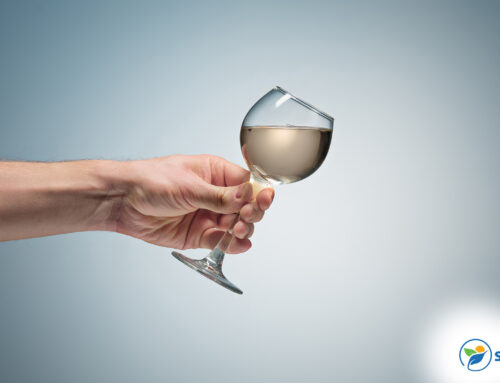Are you known as a mean drunk? Do you behave just fine when sober but start shouting at loved ones, picking fights with strangers, breaking plates or punching walls when drunk? If you’re wondering why alcohol causes you to act this way, you’ve come to the right place. Here, you can learn what causes aggression in alcoholics and the steps you can take to remove alcohol and violence from your life.
What Does Alcohol Do to the Body?
Many people experience immediate relaxation, a rush of confidence and even a bit of euphoria after taking a few sips of alcohol. These effects reflect how alcohol moves through your body and its impact on the brain.
The body’s nervous system consists of neurotransmitters or chemicals that move messages from one nerve to another. Neurotransmitters start, regulate or stop different bodily functions, such as breathing and thinking.
The neurotransmitters involved in alcoholism are glutamate and gamma-aminobutyric acid (GABA). Glutamate usually stimulates brain activity and produces high energy levels. GABA does the opposite, reducing brain activity and causing you to think and act more slowly than usual.
When alcohol enters the body, it stops the release of glutamate but activates the release of GABA, making you feel relaxed or even a bit lazy after drinking. Some people speak more slowly or experience slurred speech when drunk, while others lose control over their bodies and become clumsy.
The slower brain activity caused by alcohol also affects your information processing abilities and makes your thoughts foggy. Your brain can lose its ability to correctly interpret what you see and hear, making it difficult to react normally to information. That’s why consuming alcohol can cause judgment lapses and make you behave in ways you wouldn’t when sober.
Why Does Alcohol Make You Aggressive?
The National Institute on Alcohol Abuse and Alcoholism (NIAAA) proposes multiple reasons why alcohol’s effects can translate into anger and aggression.
One explanation is that the slower brain activity induced by alcohol causes behavior disinhibition and low impulse control. So, while you may be able to control your irritation toward someone or a situation while sober, the poor impulse control you experience when drunk will make you lash out in similar circumstances.
Since alcohol impairs your reasoning and the ability to think through your actions, you’re more likely to act aggressively when drunk because you’re unable to consider any current or future consequences of your violent actions. An intoxicated person may ruin valuables or hurt people because they can’t assess the personal and legal ramifications of their behavior.
Another explanation for alcohol aggression is also related to your brain’s reduced capacity to process your environment correctly. Alcohol lowers your ability to see the bigger picture, causing you to make interpretations based on minimal information. For example, if you’re drunk, you might interpret someone bumping into you in a bar as a sign of hostility, causing you to react aggressively to protect yourself.
Statistics on Alcohol and Violence
Alcohol is a drug that’s often socially acceptable to consume. However, it’s also the drug most associated with aggressive behavior.
According to the NIAAA, alcohol is involved in more than 42% of violent crimes reported within communities in the United States. Additionally, 60% of sex offenders and 13% of child abusers report being under the influence when committing offenses. A study of homicide cases also found that more than 50% of offenders had used alcohol when committing crimes.
Alcohol is a significant contributor to domestic and intimate partner violence as well. Over 40% of domestic violence cases in the United States involve alcohol. A study of alcohol and aggression found that 56% of male alcoholics in heterosexual relationships had physically harmed their partners. Additionally, alcohol aggression leads to more severe injuries among victims of domestic violence.
Recognizing the Damage of Drinking
Alcohol’s influence over your behavior may only last a few hours, but the real damage it causes to you and your loved ones takes much longer to repair.
So how can you tell if alcohol is negatively impacting your life?
Self-Harm
Alcohol aggression isn’t always directed outward. A 2017 study found that around 44% of people who committed suicide had alcohol in their system at the time of the attempt. Alcohol was also involved in over one-fifth of the self-harm cases studied.
Alcohol is a depressant that negatively affects the parts of your brain responsible for reasoning. Consequently, the drug can transform thoughts of self-harm into action, making you injure yourself even if you wouldn’t while sober.
Additionally, the low brain activity caused by alcohol can make it difficult for you to come up with reasons to stay alive when you experience suicidal thoughts, making it more likely for you to complete suicide.
An enhanced desire to harm yourself when drunk is a sign of alcohol aggression that you should never ignore.
Domestic Violence
Domestic violence occurs when an individual causes physical, verbal, psychological, sexual or monetary violence to their partner. Thus, while you may not hit or sexually assault your romantic partner during a drunken outburst, you can still inflict violence on them by shouting, insulting and belittling them.
Violence can also involve disrespecting a partner’s boundaries, whether by going through their phone without permission or persistently invading their personal space.
Domestic violence is a crime, so you can’t escape legal repercussions by claiming drunkenness. However, even if your partner doesn’t report you to the authorities, you should seek help with alcohol-related domestic violence. Finding help immediately can ensure your family members remain protected from alcohol and violence.
Social Aggression
It’s easy to pick fights with people after drinking too much alcohol because the drug causes disinhibition. Plus, being in an environment filled with drunk people can make you more aggressive and likely to become the victim of another angry drunk.
Public alcohol aggression is very dangerous. You may get into a fight with someone who overpowers you physically or uses a knife or gun to end the confrontation. Moreover, since you’re not in complete control of your actions when drunk, you might fatally injure another person during an alcohol-induced fight.
If you consistently get into fights when out drinking, you need to find help to change your habits.
Where to Find Help for Alcohol Aggression
You don’t have to deal with alcohol and violence alone. Sunlight Recovery offers various programs for treating alcoholism and the aggressive behavior it causes. Contact our team today to learn how we can help you overcome alcohol aggression.






